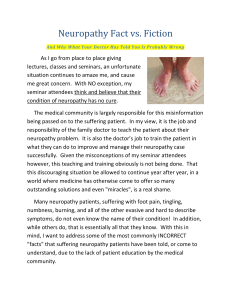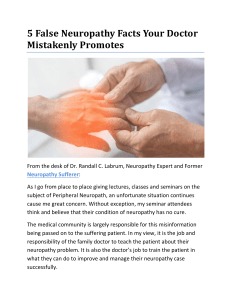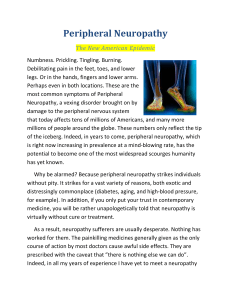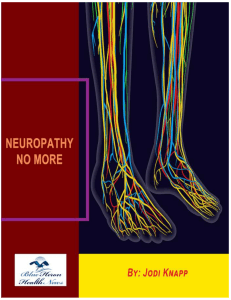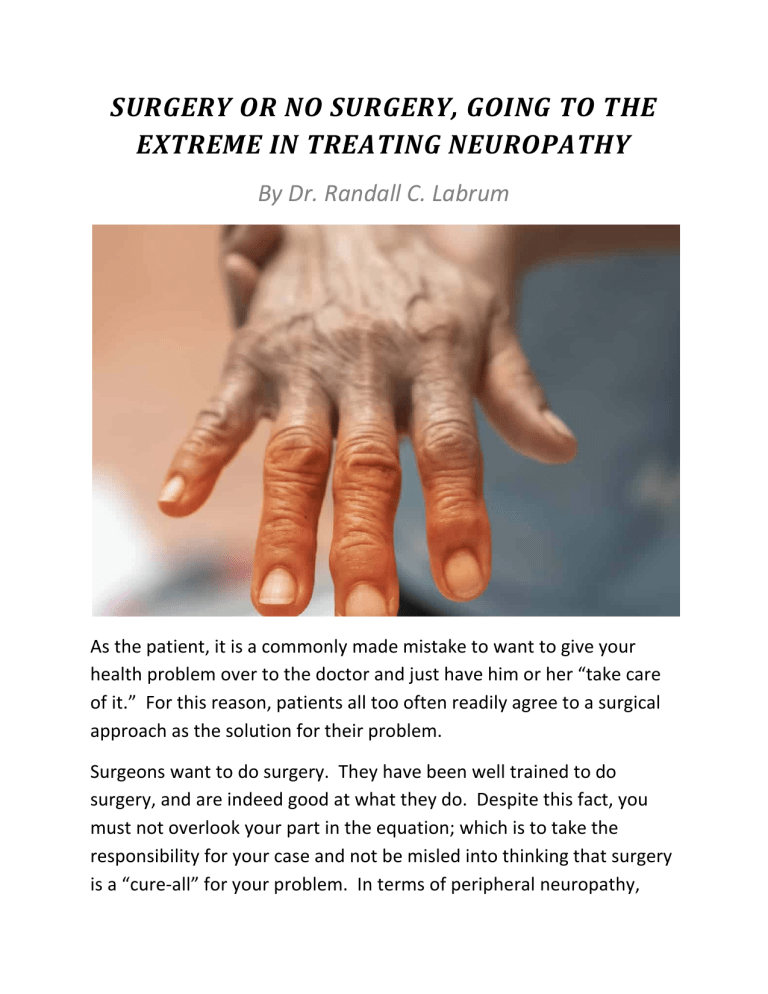
SURGERY OR NO SURGERY, GOING TO THE
EXTREME IN TREATING NEUROPATHY
By Dr. Randall C. Labrum
As the patient, it is a commonly made mistake to want to give your
health problem over to the doctor and just have him or her “take care
of it.” For this reason, patients all too often readily agree to a surgical
approach as the solution for their problem.
Surgeons want to do surgery. They have been well trained to do
surgery, and are indeed good at what they do. Despite this fact, you
must not overlook your part in the equation; which is to take the
responsibility for your case and not be misled into thinking that surgery
is a “cure-all” for your problem. In terms of peripheral neuropathy,
oftentimes the patient is far worse off after surgery has been done.
Once a person has had surgery performed however, there is no option
of going back to where they were before.
This explained, there is indeed a surgical procedure that “may” be
helpful for your neuropathy problem. You must however understand
the information that follows before making any decisions that include
surgery for peripheral neuropathy, as surgery in my experience is the
extreme form of treatment for the neuropathy condition. The surgical
procedure being referenced for peripheral neuropathy is known as
“Tarsal Tunnel surgery for nerve decompression”. Foot surgeons will
often promote this approach in good faith, not knowing what else to do
for the case.
To be clear, as a first line approach to neuropathy, surgery is a very
UNWISE decision.
Even in the rare cases where the posterior tibial nerve and its plantar
branches may be suffering from hard tissue compression in the tarsal
tunnel near the ankle, the expected relief will probably not be
forthcoming after surgery. The causes for neuropathy, as outlined in
the guide “Peripheral Neuropathy: The Mystery Unlocked”, which is
part of my "Neuropathy Solution Program", are probably also present
with the person who has posterior tibial nerve compression. Surgery in
and of itself will not correct these issues. The patient must correct
them him or herself first. The treatment and management procedures
presented in "The Neuropathy Solution Program" must be
implemented FIRST, in order for the nerves to regain a reasonable
amount of cellular tissue health before the surgery is performed. If this
order of priority is indeed followed, the nerves will be healthier and
consequently respond much more quickly and completely after the
decompression surgery is performed, although in most cases, the
surgery will become altogether unnecessary.
It should be remembered that foot surgery -- or its equivalent
equivale in the
hands -- for the treatment of neuropathy symptoms is a “high risk”
procedure that must not be taken lightly, or unconditionally simply on
the advice of a surgeon. With this in mind, a second opinion should
always be sought before patient consents to surgery. Remember, the
responsibly for this decision is the patient has after all is said and done.
It should also be noted that the recovery period after such surgery is
usually at least one year, and is very often accompanied by poor
healing, infection, and ot
other serious complications. What’s more, as
mentioned earlier, if this surgical approach is done before the nerves
have been put into a healthy environment as outlined in "The
Neuropathy Solution Program"
Program",, a very poor and unsatisfying outcome
outcom
is almost certain to result.
My recommendation is to attempt bringing the unhealthy nerves back
into a healthy environment FIRST, by strictly following the procedures
and methods taught in "The Neuropathy Solution Program".
Program" If, after
six months, the neuropathy
uropathy symptoms persist at an unacceptable level,
which is unlikely, then a patient should begin a diligent process of
research in consideration of the Tarsal Tunnel decompression surgery,
or equivalent hand surgery, under the direction of a good surgeon.
surgeon

